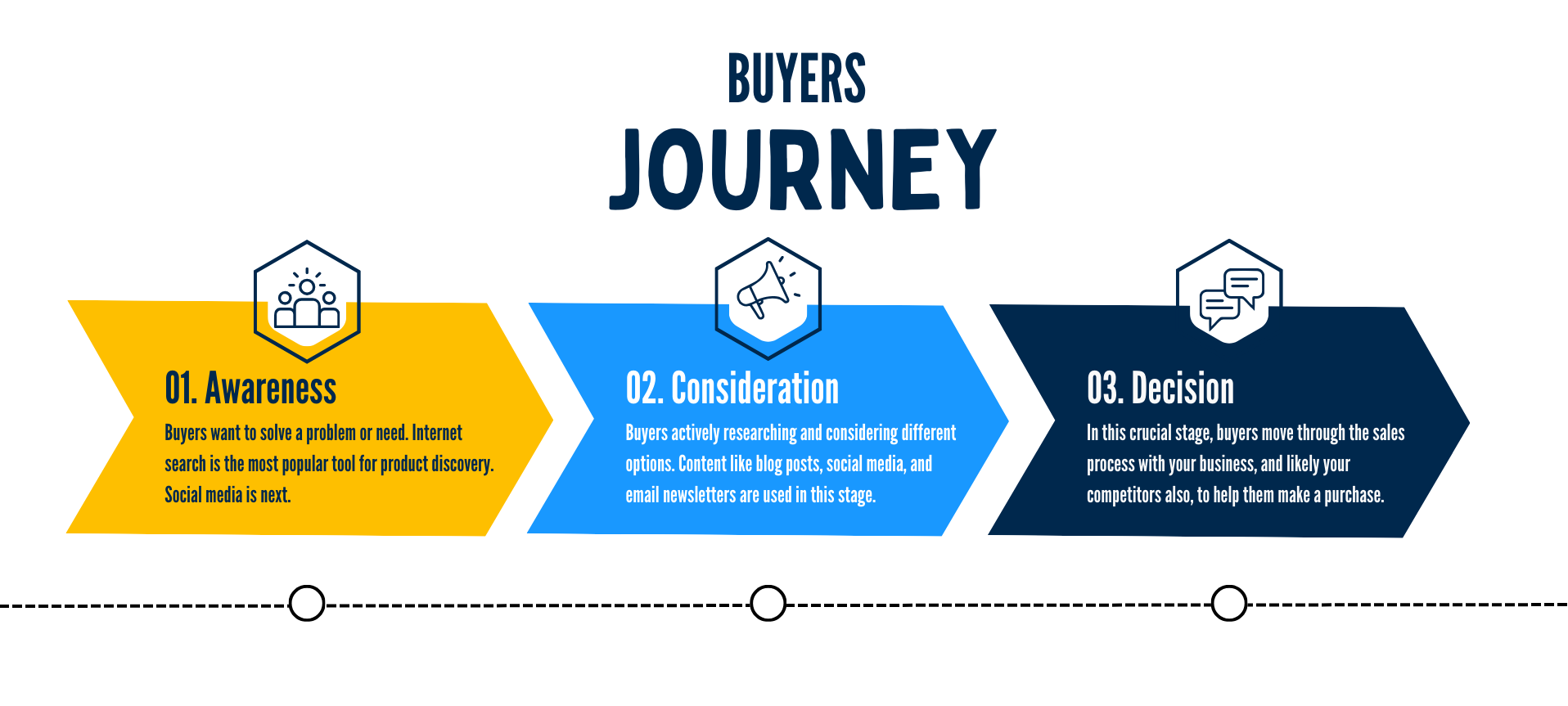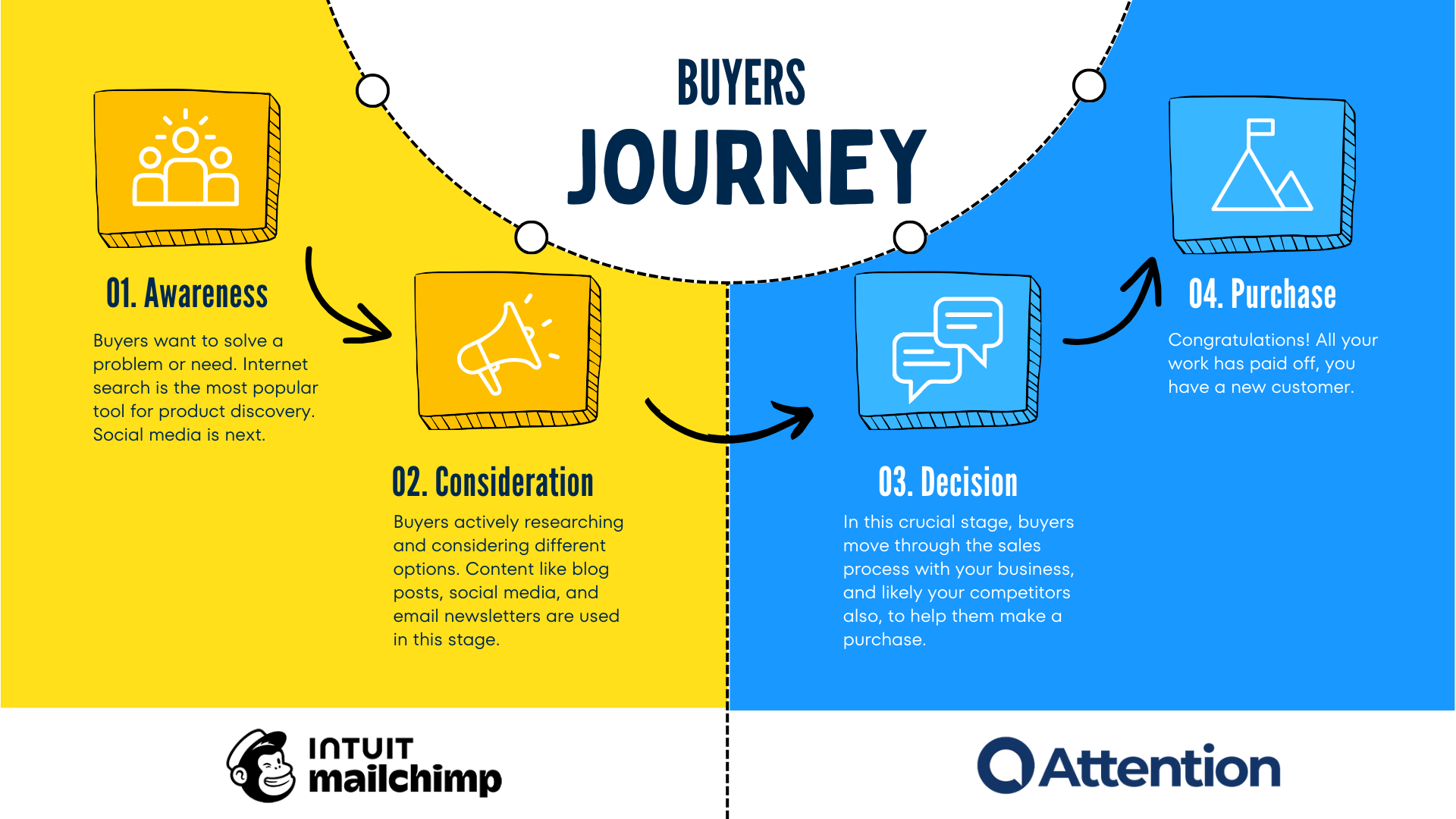Understanding the Buyers Journey and How it Impacts Your Success
The buyer's journey refers to the process that individuals go through when making a purchasing decision.

The buyer's journey refers to the process that individuals go through when making a purchasing decision.

Understanding the buyer's journey is crucial for us to attract and retain customers. The buyer's journey refers to the process that individuals go through when making a purchasing decision, from the initial awareness of a problem or need to the final purchase and beyond. In this blog post, we'll explore what the buyer's journey entails, its stages, challenges buyers face, and how our sales teams can navigate the decision stage effectively.
The buyer's journey is a framework that outlines the steps a prospective customer takes before making a purchase. It encompasses the various stages and touchpoints that individuals encounter as they progress from being unaware of a need or problem to actively seeking solutions and making a purchase decision. Understanding the buyer's journey allows businesses to tailor their marketing and sales efforts to meet the needs and preferences of their target audience at each stage of the journey.
Marketing Automation tools are great at the first two stages of the Buyers Journey - Awareness and Consideration. Using a Sales Automation tool for the final pivitol stage, where the buyers is comparing you to your competitors to make a purchase, provides us a big advantage.
"Using Attention with marketing automation tools, like Mailchimp, puts growing your revenue on autopilot"

In conclusion, understanding the buyer's journey is essential for businesses looking to attract and retain customers. By recognizing the stages of the buyer's journey and the challenges buyers face, we can tailor our approach to effectively navigate the decision stage and ultimately drive conversions. By providing relevant information, addressing objections, offering personalized support, and creating a sense of urgency, we can help buyers feel confident in their decision and ultimately make a purchase.
Understanding the Sales Process to effectively guide prospects.
New to Attention and not sure where to start? We'll walk you through the basic uses so you know what to expect along the way.
Quick guides and more to help you be successful with Attention